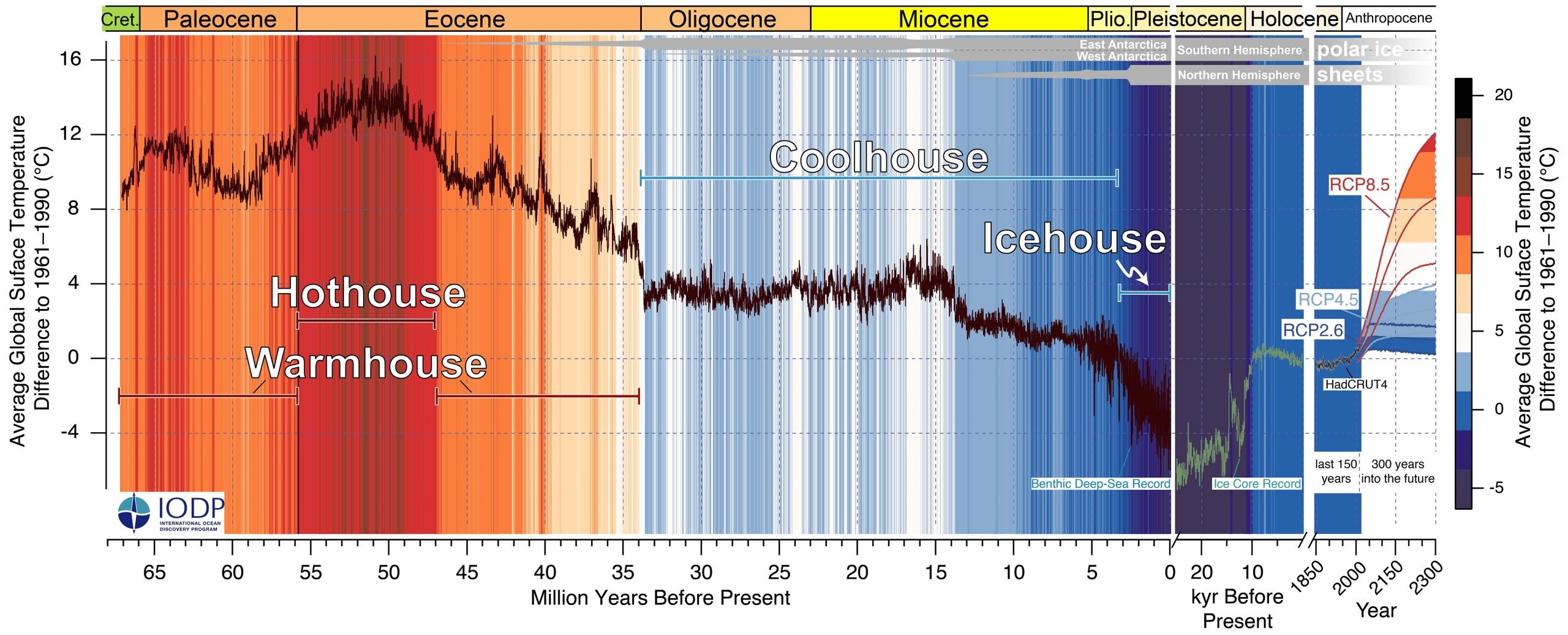
66 Million Years of Earth’s Climate History Uncovered – Puts Current Changes in Context
A continuous record of the past 66 million years shows natural climate variability due to changes in Earth's orbit around the sun is much smaller than projected future warming due to greenhouse gas emissions. For the first time, climate scientists have compiled a continuous, high-fidelity record
scitechdaily.com

For the first time, climate scientists have compiled a continuous, high-fidelity record of variations in Earth's climate extending 66 million years into the past. The record reveals four distinctive climate states, which the researchers dubbed Hothouse, Warmhouse, Coolhouse, and Icehouse.
The new findings, published today (September 10, 2020 in the journal Science, are the result of decades of work and a large international collaboration. The challenge was to determine past climate variations on a time scale fine enough to see the variability attributable to orbital variations (in the eccentricity of Earth's orbit around the sun and the precession and tilt of its rotational axis).
"As we reconstructed past climates, we could see long-term coarse changes quite well. We also knew there should be finer-scale rhythmic variability due to orbital variations, but for a long time it was considered impossible to recover that signal," Zachos said. "Now that we have succeeded in capturing the natural climate variability, we can see that the projected anthropogenic warming will be much greater than that."
For the past 3 million years, Earth's climate has been in an Icehouse state characterized by alternating glacial and interglacial periods. Modern humans evolved during this time, but greenhouse gas emissions and other human activities are now driving the planet toward the Warmhouse and Hothouse climate states not seen since the Eocene epoch, which ended about 34 million years ago. During the early Eocene, there were no polar ice caps, and average global temperatures were 9 to 14 degrees Celsius higher than today.
Now that they have compiled a continuous, astronomically dated climate record of the past 66 million years, the researchers can see that the climate's response to orbital variations depends on factors such as greenhouse gas levels and the extent of polar ice sheets.
"In an extreme greenhouse world with no ice, there won't be any feedbacks involving the ice sheets, and that changes the dynamics of the climate," Zachos explained.
The new climate record provides a valuable framework for many areas of research, he added. It is not only useful for testing climate models, but also for geophysicists studying different aspects of Earth dynamics and paleontologists studying how changing environments drive the evolution of species.
"It's a significant advance in Earth science, and a major legacy of the international Ocean Drilling Program," Zachos said.


